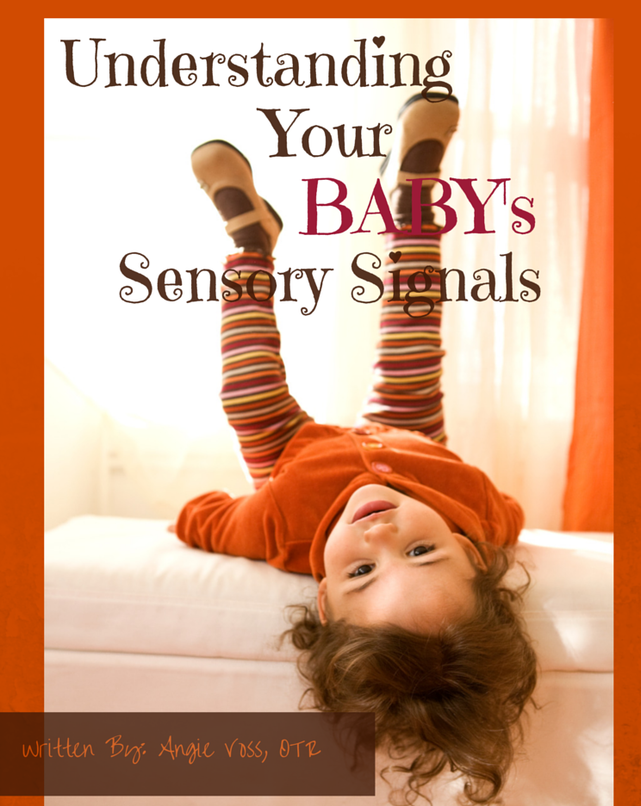A baby may be given the label "fussy" or "colicky"....often a catch all diagnosis from a doctor, yet when given this diagnosis or assumption, a very critical component may be missed. These symptoms of a fussy or colicky baby may be a sign of sensory processing difficulty and neurobehavioral disorganization (a problem with self-regulation and state behavior in infants). When these symptoms are written off as fussy or colicky, sensory processing concerns are not identified and therefore not addressed. It is not until the child is beginning to show delays in development, social skills, self-regulation and emotional development, language, and adaptive skills that it is then brought to attention again. The unfortunate part is the very best window of opportunity to address the sensory pathways in the brain may have been missed, which is between the ages of birth and 3 years old.
Nerve pathways are pliable in a very young brain, primarily before age 3. This is called neuroplasticity. This is when it is much easier and possible to help change the "hard wiring" in the brain for those struggling with sensory processing issues. Sensory integrative treatment can begin in infancy and in the toddler years. Too many times parents and doctors just say "they will outgrow it" or simply deny the symptoms as a true concern.
Achievement of developmental milestones requires a strong sensory foundation. If the brain is not processing sensory information correctly or is deprived of essential sensory input, a baby will likely have difficulty with self-regulation and/or achievement of developmental milestones....such as sitting,crawling, or walking. Self-regulation for a baby includes sleeping patterns, ability to calm self, eating/breastfeeding, and interaction within the environment. If the brain is over-responsive to sensory input, it can also result in avoidance of sensory input, such as food, touch, movement, and sound. When the brain avoids this critical sensory nutrition, it impacts overall development.
Nerve pathways are pliable in a very young brain, primarily before age 3. This is called neuroplasticity. This is when it is much easier and possible to help change the "hard wiring" in the brain for those struggling with sensory processing issues. Sensory integrative treatment can begin in infancy and in the toddler years. Too many times parents and doctors just say "they will outgrow it" or simply deny the symptoms as a true concern.
Achievement of developmental milestones requires a strong sensory foundation. If the brain is not processing sensory information correctly or is deprived of essential sensory input, a baby will likely have difficulty with self-regulation and/or achievement of developmental milestones....such as sitting,crawling, or walking. Self-regulation for a baby includes sleeping patterns, ability to calm self, eating/breastfeeding, and interaction within the environment. If the brain is over-responsive to sensory input, it can also result in avoidance of sensory input, such as food, touch, movement, and sound. When the brain avoids this critical sensory nutrition, it impacts overall development.
A few examples of sensory signals included in the new book!
- Excessive crying and irritability
- Difficult to sooth or calm
- Feeding difficulties
- Lack of alertness
- Arched back
- Avoids social interaction
- Dislikes being touched or held
- Dislikes bathing
- Dislikes diaper changes
- Dislikes clothing changes
- Dislikes swinging or movement
- Dislikes tummy time
- Frequent hiccups
